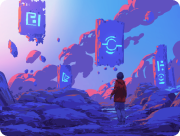Boosting Productivity and Efficiency: How Joygame Maximizes Machinations to Streamline Game Development

“The strategic implementation of Machinations allowed Joygame to significantly cut down on development time and enhance system reliability.“
Hüseyin Kocakuşaklı, Lead Game Designer at Joygame.
Joygame, based in Istanbul, Turkey, is a dynamic game studio with a robust portfolio, especially known for its mobile casual games along with ventures into VR and PC gaming.
With over 75 professionals on board, this case study draws on insights from Gökay Doğaner, who handles character design and gameplay, and Hüseyin Kocakuşaklı, Project’s Design Lead.
Their insights reveal how Joygame has transformed the way game systems are conceptualized, tested, and refined, leading to improvements in both productivity and efficiency of their development process. Here is how they did it.
Challenge: Balancing complex, probability-based systems.
Across its various projects, Joygame consistently faced challenges with balancing complex systems. Gökay articulates this persistent issue: “We were facing difficulties especially in balancing probability-based systems, and it was taking us a long time to test these systems”. This included difficulties such as managing values generated by functions for character interactions within a shard system for an upcoming ARPG the team is working on.
Solution: Leveraging Machinations to quickly predict possible outcomes.
Recommended by peers, the introduction of Machinations was a game-changer for Joygame. The tool was first tested on smaller, less complex systems and, upon successful integration, was expanded to handle more significant aspects of their games. “We initially started by designing a few simple systems in the game. As we succeeded we began to add more complex systems, things that we could easily set up and save time with these systems, before we decided to fully integrate them into the project,” explains Gökay.
The typical design workflow at Joygame now involves a seamless integration of Machinations to their traditional toolsets. It starts with system designs in Spreadsheets, where Hüseyin and his team establish the basic structures and simulate initial interactions, facilitating swift conceptual adjustments.
As projects progress, these systems are meticulously transferred to Machinations by Gökay’s team. This transition enables a shift to more complex simulations, allowing the team to dynamically model and visualize intricate game mechanics.
“Machinations opens many more possibilities to see play insights and what players will do within these systems and other possible outcomes that we would otherwise not be able to see” says Hüseyin, adding that “This strategic implementation allowed the team to significantly cut down on development time and enhance system reliability.“
An additional advantage emerged in the form of improved communication within the team. Gökay noted the impact on teamwork, particularly between key teams: “Machinations has been beneficial for both of us to better understand each other from a design perspective.”
Results: Significant gains in productivity and efficiency.
The adoption of Machinations at Joygame has proven to be a significant boon, not only in terms of system optimization but also in enhancing team productivity and project timelines.
“We have noticed significant benefits in productivity and time efficiency with Machinations. The tool allows us to simulate systems and pinpoint potential issues early on, which is crucial for maintaining our project timelines and enhancing productivity.”
Gökay Doğaner, Game Designer at Joygame.
And as they continue to leverage Machinations in their workflows, the expected long-term benefits include sustained improvements in efficiency and collaborative synergy, setting a robust foundation for future projects.
